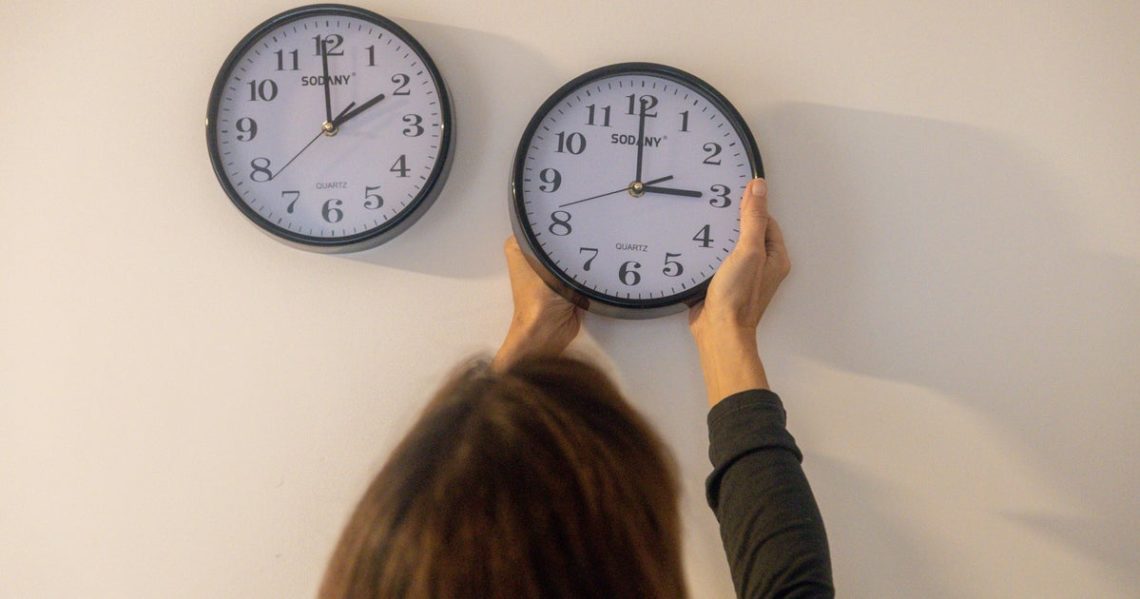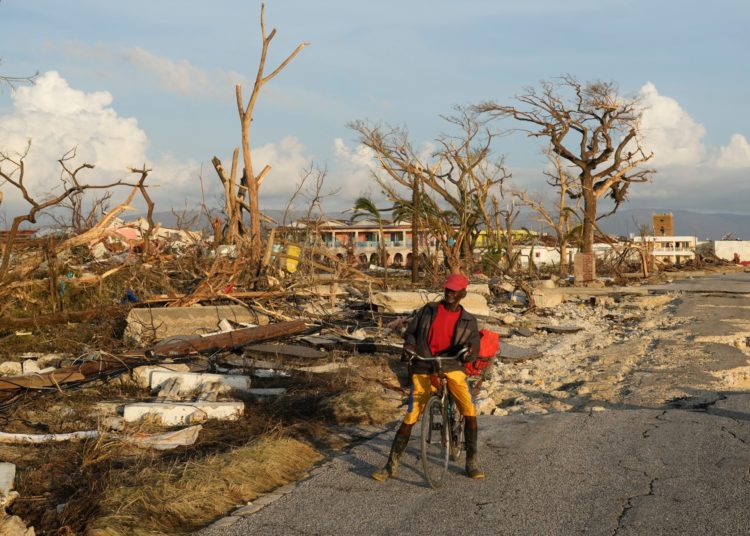Daylight saving time is coming to an end for 2025. This Sunday, Nov. 2, clocks “fall back” and we gain an hour. Here’s what to know about the seasonal time change.
When does the time change for the end of daylight saving 2025?
Daylight saving time comes to an end on Sunday, Nov. 2, at 2 a.m., when the time goes back to 1 a.m.
Daylight saving time began last spring on March 9. Clocks will “spring forward” next year on March 8, 2026, when daylight saving time returns.
Do we lose or gain an hour when daylight saving time ends?
People will gain an hour as clocks fall back on Sunday. For most Americans, that means an extra hour of sleep.
Many digital clocks will automatically reset overnight, but remember to change any watches or clocks that need to be manually adjusted.
After the time change, darkness will arrive earlier in the evening, and sunrise in the morning will also come earlier.
Why was daylight saving created in the first place?
Annual clock changes have been around for decades, but the origins of the practice remain something of a mystery. People have pointed toward farmers wanting more daylight or cited various proponents of getting up earlier in the day, but some of those theories are disputed.
Germany began observing daylight saving time in 1916 during World War I, with the thought that it would save energy. Other European countries and the U.S. followed suit in the next few years.
There was some debate around the practice in the decades that followed, but eventually, daylight saving time was enacted in the U.S. as a legal requirement by the Uniform Time Act of 1966, according to the Bureau of Transportation Statistics.
Which states don’t do daylight saving time?
While clocks will change for most of the U.S., there are two states and several territories that do not observe daylight saving time. Clocks will not change in Hawaii or Arizona (except for in Navajo Nation), American Samoa, Guam, the Northern Mariana Islands, Puerto Rico or the U.S. Virgin Islands, according to the Department of Transportation, which oversees the nation’s time zones
States can opt out of observing daylight saving time, but they cannot choose to permanently be on daylight saving time.
Most countries around the world do not observe daylight saving, with the U.S. and most of Europe being the exception rather than the rule, according to Pew Research Center. Among countries that do change their clocks, most of them rolled back an hour in October, according to timeanddate.com.
The debate over daylight saving time today
A 2022 CBS News/YouGov poll found that nearly 80% of Americans supported changing the current system, with more Americans preferring daylight saving time to standard time.
That same year, the Senate passed a bill called the Sunshine Protection Act that would have made daylight saving time permanent, but it never advanced in the House of Representatives.
President Trump, before his return to office for his second term, said he’d push to eliminate the time change.
“The Republican Party will use its best efforts to eliminate Daylight Saving Time, which has a small but strong constituency, but shouldn’t! Daylight Saving Time is inconvenient, and very costly to our Nation,” he wrote on Truth Social in December of last year.
While his December comment called for the elimination of daylight saving time, Mr. Trump has, in the past, called for permanent daylight saving — that is, keeping clocks shifted one hour ahead.
There have been a number of studies finding that changing clocks twice a year can be disruptive for people’s health. In addition to impacting mood and mental health, researchers at Stanford Medicine this year said that falling back and springing forward may lead to an increase in heart attacks, obesity and strokes.
The post Get ready to fall back: Daylight saving time ends this weekend appeared first on CBS News.




